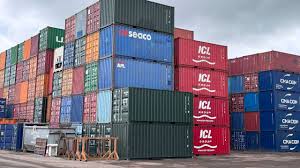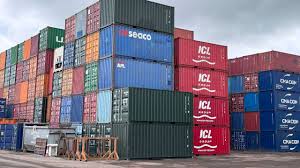In every nation experiencing growth, from the rising cities of Pakistan to the industrial hubs of the Middle East and Africa, the steel and metal supply chain is a critical foundation. Behind every high-rise tower, every factory, every bridge or water system, there is a silent but essential contributor — the steel pipe and metal supplier.
These suppliers do far more than just deliver materials. They provide the core components that make construction possible, industries efficient, and infrastructure sustainable. Whether it’s a bulk shipment of galvanized steel pipes to a utility company or custom-cut stainless steel for a precision manufacturer, the reliability, diversity, and expertise of the supplier directly influence the success of the project.
What Makes Steel Pipes Essential?
Steel pipes are among the most widely used materials in the industrial world. Their strength, versatility, and durability make them suitable for a wide variety of applications — from transporting water, gas, and oil to supporting building structures and industrial systems.
There are several types of steel pipes, each tailored to specific uses:
-
Seamless Pipes: Manufactured from solid steel billets and offering high pressure tolerance. They are crucial in oil drilling, power generation, and high-temperature environments.
-
ERW and Welded Pipes: Electric resistance welded pipes are common in infrastructure and utility projects, offering strong performance at lower costs.
-
Galvanized Steel Pipes: Coated with a layer of zinc, these pipes resist rust and corrosion, making them perfect for plumbing, outdoor use, and agricultural irrigation.
-
Alloy Steel Pipes: These are engineered for extra strength, heat resistance, and durability. Often used in chemical processing, energy plants, and aerospace.
Steel pipes vary in diameter, wall thickness, and grade depending on the application. A good supplier ensures not only availability but also technical guidance to choose the right type for each job.
Metal Suppliers: More Than Just Pipe Providers
While pipes are central to many projects, a professional metal supplier typically offers a much broader range of materials and products. This includes:
-
Sheets and Plates: Used in shipbuilding, machinery, and construction.
-
Structural Steel (I-beams, angles, channels): Critical for buildings, bridges, and heavy equipment.
-
Bars and Rods: For automotive, manufacturing, and fabrication work.
-
Aluminum and Stainless Steel Products: Ideal for environments requiring corrosion resistance and lightweight performance.
-
Copper and Brass Components: Essential for electrical work, fittings, and architectural detailing.
Reputable suppliers provide these materials in various thicknesses, finishes, and formats, as well as custom fabrication services such as cutting, drilling, bending, punching, or surface treatments. These services help clients save time and reduce waste on-site.
Industries Served by Steel and Metal Suppliers
A versatile steel and metal supplier serves a wide variety of industries. Among the most important are:
-
Construction and Civil Engineering: Steel is used in framing, scaffolding, reinforcements, and facades.
-
Oil, Gas, and Petrochemicals: Pipes and tubing are vital for exploration, refining, and distribution.
-
Energy and Power Generation: Boilers, turbines, and cooling systems require high-performance alloys.
-
Water Management: Municipal water and sewer systems rely on durable pipes and fittings.
-
HVAC and Fire Protection: Steel and copper pipes are key in heating, cooling, and safety systems.
-
Agriculture and Irrigation: Galvanized pipes, fencing materials, and structural components are needed for modern farms.
-
Transportation: Trucks, ships, and railways rely on sheet metal, beams, and precision-machined parts.
Regardless of sector, businesses depend on suppliers who can deliver consistent quality, timely deliveries, and professional support.
Global Sourcing: Meeting Demand Across Borders
In today’s interconnected world, many businesses source their steel and metal products internationally. Countries like China, Turkey, UAE, and the USA have become major hubs for exporting steel pipes, coils, sheets, and bars to global markets.
For example:
-
China is a global leader in producing hot-rolled steel, nickel-plated steel strips, and bulk metal supplies at competitive pricing.
-
Turkey and UAE serve as transit hubs and regional suppliers to the Middle East, North Africa, and South Asia.
-
USA and Europe offer high-grade materials with stringent quality standards, ideal for energy, defense, and precision manufacturing.
In Pakistan, the construction boom has created growing demand for imported steel products. Local buyers often rely on international suppliers who can provide certified materials, competitive prices, and timely shipments via Karachi and Gwadar ports.
What to Expect from a Professional Supplier
Not all metal suppliers are created equal. The best ones offer a complete solution — from product availability to technical support, logistics, and after-sales service.
Here’s what defines a top-tier supplier:
-
Wide Inventory: A full range of metals, alloys, and structural profiles.
-
Certifications and Standards: Compliance with ASTM, ISO, EN, and JIS.
-
Custom Orders: Flexibility to handle unique sizes, coatings, or processing.
-
Logistics Support: From shipping documents to delivery tracking.
-
Technical Advice: Engineering support and product selection guidance.
-
Competitive Pricing: Especially important for bulk or repeat orders.
Buyers should also look for suppliers with regional experience and understanding of local regulations, taxes, and import duties — especially when working across borders.
Why Bulk Supply Matters
For large-scale contractors and industrial developers, sourcing metal in bulk brings cost savings, consistency, and scheduling advantages. Whether it’s 100 tons of galvanized steel pipe for a municipal water system or structural steel for a bridge project, bulk orders ensure:
-
Lower unit prices through volume discounts.
-
Uniform quality across all materials.
-
Reduced lead times with scheduled deliveries.
-
Less logistical risk through consolidated shipments.
Steel suppliers who specialize in bulk supply often have better warehousing, packing, and container loading capabilities — key for international shipments.
Digital Transformation in the Metal Supply Industry
Today’s best suppliers aren’t just warehouses — they are digital service providers too. With online catalogs, instant quote systems, real-time inventory updates, and customer portals, buyers can:
-
Browse available stock 24/7.
-
Request quotations online.
-
Track shipments and invoices.
-
Chat with customer service in real time.
This tech-driven approach has become essential in large-scale procurement, making the process faster, more transparent, and more efficient.
Conclusion
Steel pipes and metal products are the invisible infrastructure of modern life. From skyscrapers and roads to refineries and irrigation systems, they are essential to economic growth and development. And behind every steel beam or pipeline is a supplier making sure the material is there, on time, and up to standard.
As industries in South Asia, Africa, and the Middle East continue to expand, the importance of choosing the right steel pipe and metal supplier cannot be overstated. Whether you are sourcing for a small fabrication shop or a multi-billion-dollar infrastructure project, partnering with an experienced, globally connected, and customer-focused supplier will ensure your success — today and for years to come.



